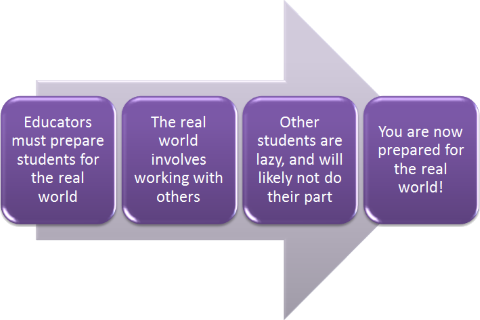Course Title: Learn to Program in Java (DEV276x)
Provider: Micosoft via edX
Price: Free
Level: Introductory
Effort: 6 — 10 hours per week, 4 weeks, allegedly self-paced
Prerequisites: None
Completion awards: Verified Certificate available for USD$99
tl;dr: Take the University of Helsinki Java courses, instead
About the course:
No. Just no. Don’t even think about taking this course. Run away. Invent your own rules for how you think Java might work, and use those instead, because they’re sure to be more useful than this course.
I apparently signed up for this module on the day it opened, but I’m not really sure how that happened. Anyway, the discussion forums were filled with people enthusiastic about what they were there to do.
There was no syllabus stating what the structure of the course was. There was no course news, no updates, no welcoming letter, nothing telling you what to click on first. The first week’s instructions, however, made it clear that the IntelliJ IDEA was an absolute necessity for the course. (It’s not. Feel free to use whatever IDE you enjoy. They do at one point discuss how to set up a new project in IntelliJ, but they skip most of the difficult steps, and get another step wrong. I learned much more about Java following the IntelliJ instructions for setting up a new project than I did in the first two weeks of the Microsoft course.)
After a few days, several of the students had finished the first week, and even though the course description said it was self-paced, there was no second week. Some people asked in the discussion forums when the content would become available. Other students were asking for help on things. Some for clarification. There was no response from anybody associated with the course’s presentation. They had hit a button to upload a third of the course, and run away.
One step up in seriousness was that response was necessary, because much of the documentation is wrong. Some of it over-simplifies things by saying this-or-that doesn’t exist, when it does, or you can’t do this-or-that, when you can. Other times, the script-reader’s information is just incorrect, and other times the questions they quiz with have 0 correct answers from which to choose.
Another step up in seriousness is that the course is completely uneven. The script-reader reads a mind-numbingly patronising script which insults the students’ intelligence. Then the documentation and quiz questions expect the students to have a much higher degree of understanding than what was just discussed. (Some courses claim this is a feature encouraging outside study, but this is a different beast entirely.) Many times, there’s no indication of a correct answer in the script or the documentation, and it can’t be learned practically by experimentation.
I refer to the “instructor” as a script reader, because that’s what she’s doing. I have no doubt that she does understand the subject content, but she’s just reading a script, and not teaching. Worse, it’s clear that she didn’t write the script, because she often stumbles when something is wrong, not being clear enough, or she’s simply struggling with it not being the right way to present something, but she just ploughs on through it regardless. One (patronising) committee wrote the script, a different person read it, a different team wrote the documentation, and someone else wrote the questions, and clearly none of these people ever met each other.
There were at least two questions which showed that the person who wrote the questions had no idea how iterative loops worked. One had a question with zero right answers, and another with two right answers. And, of course, there’s no way to get them fixed, because nobody from the presentation is there.
Anyway, when the second week was finally released, randomly nine or ten days after the course opened, and there was still nobody to answer questions, and the documentation was worse than ever, I finally just bailed.
To sum up: No.

